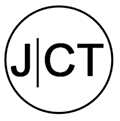Rejection is never fun, but you can always learn something from it. I have had eight interviews for five positions within the last two months, and I feel like I’m becoming an expert. Keep reading to learn ten practices I now make sure to incorporate into the selection process. Some may have cost me previous roles; others have led me to offers for positions that weren’t right for me.
1. Be prepared.
Do your research. Know as much as you can about the position and responsibilities. Seek future challenges you may face, if selected, and be aware of tasks you will be able to complete with ease. Evaluate your strengths and weaknesses. Know what is on your résumé, and be able to speak about steps you took to achieve success as opposed to positions you have held. Plan ahead and arrive fully prepared at least five minutes before the scheduled meeting.
2. Smile and be confident.
A smile exudes confidence, and employers want someone who can provide this quality in their work and representation of the company or organization. Don’t be arrogant.
3. Communicate beyond words.
Your body language and handshake say a lot about you and your attitude toward the company and position. Always give a firm handshake, and watch your posture; speak positively with your hands and facial expressions. Don't forget to listen; it's a major component of communicating that people often forget. Active listening will also help when you reach number eight.
4. Showcase your personality.
Don’t be so focused on impressing your interviewers that you forget to be yourself.
5. Bring physical copies of your résumé and portfolio.
Don’t walk into your interview without a portfolio complete with strong work samples that showcase the experience you’ve gained and what you can contribute to the company and team. It also helps to provide access to a digital portfolio. Have several copies of your résumé in case it hasn’t been printed; keep in mind that there may be more than one interviewer.
6. Be comfortable incorporating your passions into conversations.
Make sure your interviewers can see your passions through your explanations. Almost all interviews I’ve had start with “Tell me a little about yourself.” This is when your elevator speech comes in handy. You don’t have to say “My passion is _____.” Talk about enjoyable activities, experiences and how you’ve fulfilled your passions through previous positions.
7. Always ask questions.
Not asking questions will likely kill your chances at advancing to the next round of interviews or securing the position. I try to prepare five questions at a minimum. You don’t have to ask all questions that you prepare, but having more to choose from will save you if some of your questions are answered before you’re given the opportunity to inquire about the company or role.
8. Follow up.
Send hand-written and email thank you notes. It’s never too soon to send a thank you note. I try to send an email within 30 minutes after the interview ends and mail a thank you note immediately after. This lets the employer know that you appreciate their time and consideration. If there has been a significant amount of time without any connection, reach out to the employers. Do not follow up without having something to talk about other than the job status; reference a topic discussed in the interview and add to it. It also helps to keep up with the organization and know what's happening. This shows that you are genuinely interested in the company rather than joining the employment circle. It can also allow employers see you as a member of the company.
9. Don’t take rejection personally.
The decision for the position is not about you. It is ultimately about the role and the best person to fill it. Employers often have a lot of applicants and factors to consider when choosing a new candidate to join their team. In some cases, the decision is made before you are contacted.
10. Be optimistic.
Never doubt your ability to excel, instead, realize that the position was not meant for you at the time or there’s a better company or position still waiting for you. Maybe it hasn’t opened yet. Be patient.
The best thing about having the opportunity to interview for a position is knowing that you are qualified. The worst part is the possibility that the position may not be meant for you and better for someone else. Although many professionals advise against taking interviews for practice, when you have the opportunity to interview and don't land the job, use it as practice for the next one.
What are some tips and tricks you use to get through interviews or some of the most interesting questions you’ve been asked? Share below.
XX,
Jasmine C. Tate

